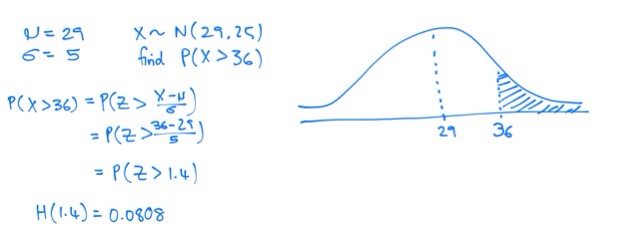Good day everyone, I am currently working on a self-study question:
Question
The number of viewers of a television show has a mean of 29 million with a standard deviation of 5 million. Assume this distribution follows a normal distribution. What is the probability that at least one of the four shows has more than 36 million viewers in the next four shows. Assume the number of viewers in each show are independent.
My Attempt
However, it seemed that the answer is not correct from that of the answer key (0.2861). Appreciate some guidance on this. I know I'm missing out on something, but I just can't figure out what.

